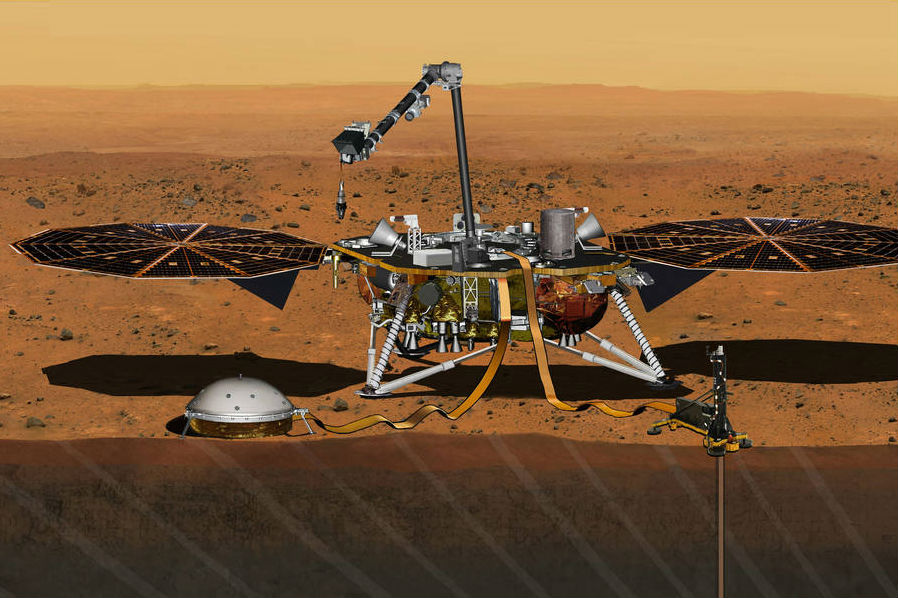
NASA’s InSight Mission to Mars will not launch in March after all
Just last week, Lockheed Martin delivered NASA’s InSight spacecraft to its launch site at the Vandenberg Air Force Base in California. The lander will now undergo final processing in preparation for a March launch aboard a United Launch Alliance Atlas V 401 rocket.
Now, the space agency has released news stating the the launch will not be taking place in March due to unsuccessful attempts to repair a leak in a section of the prime instrument in the science payload.
![This artist's concept depicts NASA's InSight Mars lander fully deployed for studying the deep interior of Mars. (Image Credit: NASA/JPL-Caltech)]()
- This artist’s concept depicts NASA’s InSight Mars lander fully deployed for studying the deep interior of Mars. (Image Credit: NASA/JPL-Caltech)
The leak had occurred earlier this year preventing the seismometer from retaining vacuum conditions. Although it was repaired and the mission team was hopeful the most recent fix also would be successful, during testing on Monday in extreme cold temperature (-49 degrees Fahrenheit) the instrument again failed to hold a vacuum.
NASA officials determined there is not enough time to fix another leak and complete the work and testing required to ensure a successful mission.
“It’s the first time ever that such a sensitive instrument has been built. We were very close to succeeding, but an anomaly has occurred, which requires further investigation. Our teams will find a solution to fix it, but it won’t be solved in time for a launch in 2016,” said Marc Pircher, Director of CNES’s Toulouse Space Centre.
The main purpose of the InSight mission is to learn more about the planets, especially Mars.
“InSight’s investigation of the Red Planet’s interior is designed to increase understanding of how all rocky planets, including Earth, formed and evolved,” said Bruce Banerdt, InSight Principal Investigator at NASA’s Jet Propulsion Laboratory (JPL), Pasadena, California. “Mars retains evidence about the rocky planets’ early development that has been erased on Earth by internal churning Mars lacks. Gaining information about the core, mantle and crust of Mars is a high priority for planetary science, and InSight was built to accomplish this.”
Although this comes as a blow, Jim Green Director at the Planetary Science Division in Washington reminds us that in 2008, Mars Science Laboratory mission was postponed for two years to better ensure mission success. The result of that what the successful Mars Curiosity rover.


Comments are closed, but trackbacks and pingbacks are open.